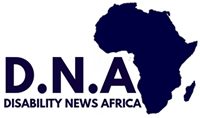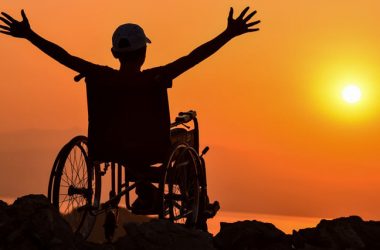Some disability youth leaders in Bamenda, North West and other 9 regions of Cameroon will soon champion leadership positions in their communities, regions and the country.
This is the main aim of the TAM Leadership Development Programme that is underway all over Cameroon.
The leadership training of youths with disability programme is being implemented by the Hope Social Union for the Visually Impaired (HSUVI), and association of blind and visually impaired people in Bamenda.
The one year program which started in November, 2021 and will run till October 2022, targets 140 youths with diverse disabilities.
On Tuesday July 19, 2022, about 20 youths with disabilities, including students and fashion designers were trained on how to become impactful leaders during a one-day workshop in Bamenda, which was headed by TamTam project coordinator, Kesah Princely.
TWIF NEWS understands that the one year project which is funded by the US Embassy in Cameroon kick-started in Buea, with a centralized training of 22 youth leaders from across the country’s 10 regions.
The 22, constituting persons with diverse disabilities are now charged with the responsibility to train their peers at the different regional headquarters as was the case in Bamenda on Tuesday.
“The rationale behind the initiative is to train youths with disabilities so that they will be able to advocate for the rights of persons with disabilities, expose them to leadership opportunities and also to fight against the stereotype surrounding disability,” Kesah Princely, the project coordinator said.
Participants of the Bamenda workshop were trained on how to become future leaders, how to keep up with current events on social media and how to follow YALI opportunities. The trainees were schooled by 3 leaders who represented the northwest region as the Buea centralised workshop earlier this year.
Presenting on the situation of youths with disabilities in Cameroon, Harrison Ngangimih drilled the participants on knowing their rights as persons with disabilities, with the fundamental ones being the right to life, freedom, education and belonging to a family, despite their race, gender or status.
They learned how to use social media coherently to search for opportunities that could broaden their scope in leadership.
At the end of the Bamenda training, participants promised to use the skills learned to start leading in their communities and different associations where they belong.
“This workshop is going to help me to interact with persons with disabilities. It will also help me to know how to interact with those without disabilities in my neighborhood and, in school and also how to stand out as a leader,” Foncham Daljoel, a participant with visual impairment said.
Source: TWIF NEWS






